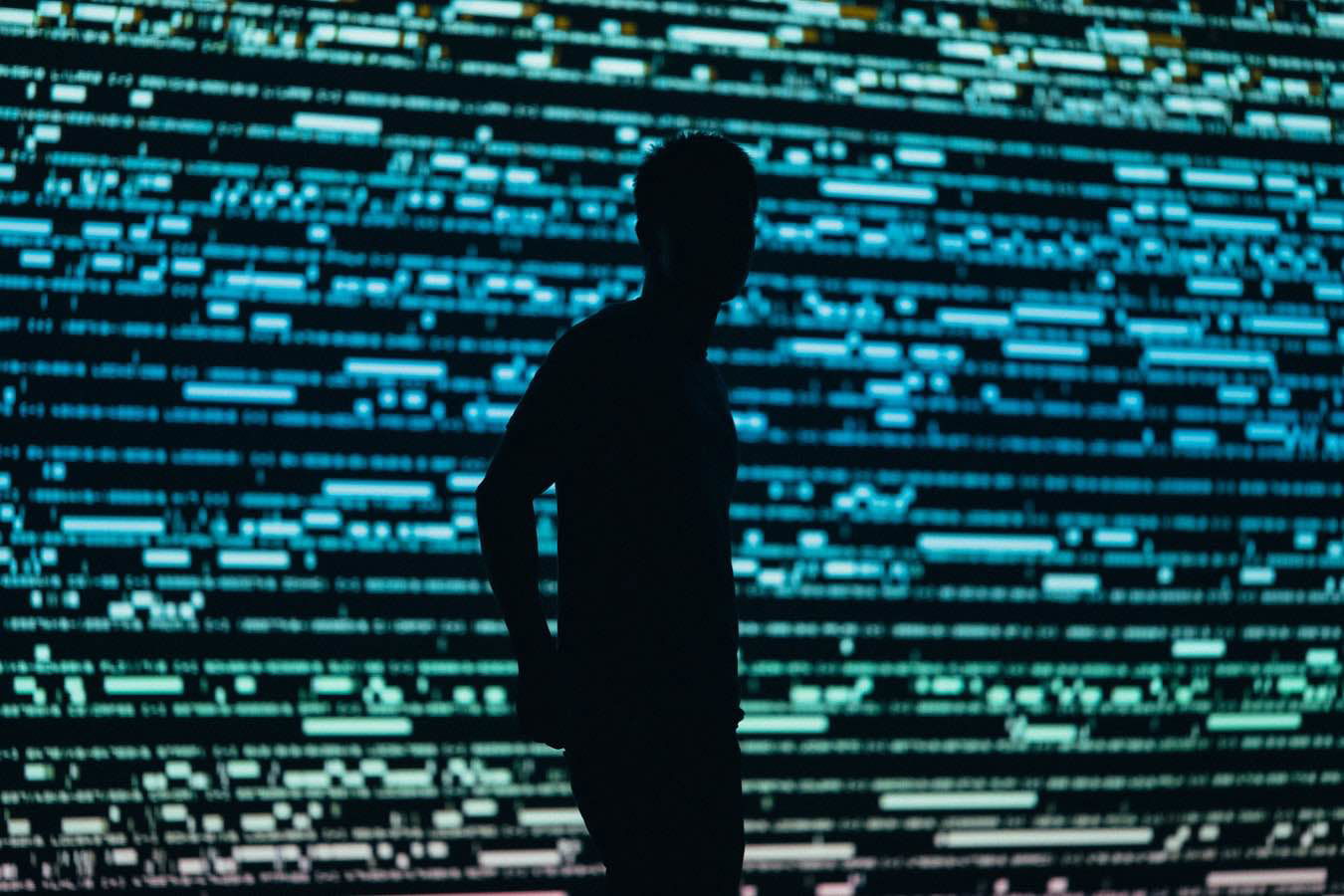

Welcome to this week’s Intelligence Brief… recently, security experts have warned about an alleged breach earlier this year that may have exposed sensitive personal information collected from billions of individuals. In our analysis, we’ll be looking at 1) how we learned that hackers may have stolen personal identifying information from close to 3 billion individuals, 2) what details are known about what may be one of history’s largest security breaches, and 3) what’s next as a class action lawsuit has been filed involving the company linked to the breach.
Quote of the Week
“A breach alone is not a disaster, but mishandling it is.”
— Serene Davis
Latest News: In recent articles at The Debrief, researchers think they may have finally solved the 47-year-old mystery of the famous “Wow! Signal.” Meanwhile, evidence of genetic behavior in organisms that researchers liken to “alien biology” suggests similar strange genes may even exist in humans. Also, new study casts doubt on the likelihood of humanity discovering technologically advanced alien civilizations. You’ll find links to all our recent stories at the end of this week’s newsletter.
Podcasts: In podcasts this week, over on The Micah Hanks Program we get a status report from the case files of the newly launched UAP Sightings Reporting System (UAPSRS). Meanwhile, in advance of the return of The Debrief Weekly Report from its summer break, you can catch up on past episodes over on The Debrief’s Podcasts Page.
Video News: On the latest episode of Rebelliously Curious, Chrissy Newton is joined by Joshua Pierson, a seasoned US Army Chief Warrant Officer with 24 years of experience in intelligence, who delves into the fundamentals of counterintelligence and the importance of structured analytic techniques in understanding UAPs. Be sure to check out other great content from The Debrief on our official YouTube Channel.
With that out of the way, it’s time to examine the recent claims involving an alleged security breach that may have exposed the personal information of billions of individuals.
Shock Claim: Hackers Steal Data From 3 Billion People
An alleged data breach earlier this year may have exposed the personal information of nearly 3 billion people, resulting in what could be one of the most significant data breaches ever.
According to a class action lawsuit filed in Florida, Jerico Pictures Inc., operating as National Public Data, was the target of a massive data breach that exposed billions of people’s personal information several months ago. The cybercriminal group USDoD reportedly executed the breach, which posted a database on the dark web allegedly containing the stolen information for a sale price of $3.5 million.


According to the complaint, National Public Data has not yet notified individuals who may have been affected or provided any other form of public notification. If confirmed, the breach could exceed the 2013 Yahoo! breach, which also compromised the data of approximately 3 billion individuals.
One of History’s Largest Data Breaches?
On April 8, 2024, a cybercriminal hacking group operating under the name USDoD posted a database titled “National Public Data” on a dark web forum. The database, which was reported to have cost $3.5 million, allegedly contained the personal information of 2.9 billion individuals in the United States, Canada, and the United Kingdom.
National Public Data, a background check company, obtains information by scraping data from sources not readily available to the public. According to the recent lawsuit filed in the US District Court for the Southern District of Florida, personal identifying information belonging to billions of people—which may include sensitive data like Social Security Numbers—could have been leaked.


The plaintiff named in the lawsuit, California resident Christopher Hofmann, reportedly learned of the breach late in July after receiving a notification from an identity theft protection service he uses. It is unclear how many others may have been notified about the alleged theft, which, if confirmed, likely involves a large number of individuals who would have had no way of knowing that their personal information had been collected and put at risk.
Hofmann accuses National Public Data of negligence, unjust enrichment, and breach of fiduciary duty, among other allegations outlined in the lawsuit, which was reported by Bloomberg Law.
What’s Next?
Right now, Hofmann is pursuing a court order that would essentially mean that National Public Data will be required to take action, which may include purging the reportedly compromised data and ensuring that data the company collects in the future is handled safely. The lawsuit also aims to ensure that a third-party assessor is assigned to monitor the company’s cybersecurity operations with annual evaluations over the next decade.
Understandably, the incident has caused concerns among several experts, who see the alleged breach as potentially far more significant than past hacking incidents. Teresa Murray, director of the U.S. Public Information Research Group, told the Los Angeles Times that the incident is “much more concerning” than earlier breaches, warning that consumers should take more precautions as such incidents are on the rise.
National Public Data has not yet issued a public statement regarding the allegations, nor has it provided warnings to any potentially affected individuals.
That concludes this week’s installment of The Intelligence Brief. You can read past editions of The Intelligence Brief at our website, or if you found this installment online, don’t forget to subscribe and get future email editions from us here. Also, if you have a tip or other information you’d like to send along directly to me, you can email me at micah [@] thedebrief [dot] org, or Tweet at me @MicahHanks.


Here are the top stories we’re covering right now…
- Despite Dire Warnings, New Research Reveals AI Poses No Existential Threat to Humanity
Despite all the ominous warnings, new research debunks the idea that AI is an existential threat to humanity.
- Beyond the Horizon: How the Rubin Observatory Will Transform Our Understanding of the Cosmos
The Rubin Observatory will revolutionize our understanding of the cosmos by capturing unprecedented data on interstellar objects, potentially uncovering evidence of extraterrestrial technology.
- Researchers Finally Know Why the Sun’s Corona is Massively Hotter than its Surface
The longstanding mystery of why the Sun’s corona is several times hotter than its surface may have finally been solved.
- Rule-Breaking “Alien” Bacteria Creates Free-Floating Genes, Upending Ideas on How Cells Use Chromosomes
Evidence of genetic behavior in organisms that researchers liken to “alien biology” has reportedly left them in “disbelief” and suggests similar strange genes may even exist in humans.
- Are We Alone? New Study Offers a Grim Outlook on the Discovery of Advanced Extraterrestrial Life
A new study casts doubt on the likelihood of humanity discovering technologically advanced alien civilizations.
- New Research is Challenging Past Views and Stereotypes About “Computer Geeks”
Researchers from the University of Reading and King’s College London say they are finding what constitutes the ideal “computer whiz” student among young people.
- Can Black Holes Be Made from Light? Scientists Say No, but Gravity Suggests Otherwise.
Can a black hole be made from light? A recent paper says no, but there was a crucial factor omitted from their calculations.
- Department of Energy Neutrino Breakthrough Using Prototype Detector Moves Scientists Closer to Solving a Cosmic Mystery
Scientists with the Deep Underground Neutrino Experiment (DUNE) have successfully detected the first neutrinos using a novel prototype particle detector.
- CERN Experiment Achieves Groundbreaking First Observations of High-Energy Neutrino Interactions in a Particle Collider
High-energy neutrino interactions have been observed within a particle collider for the first time, according to findings detailed in a new study that marks an important new milestone in particle physics.
- NASA Bids Farewell to NEOWISE with Conclusion of Near-Earth Object Detection Mission
NASA’s NEOWISE mission has ended after almost fifteen years of patrolling Earth’s orbit for space objects.
- Breakthrough Study Sheds Light on the Riddle of Human Creativity
Neuroscientists have pinpointed a specific region of the brain that plays a pivotal role in the generation of human creativity.
- Source of the Moon’s Mysterious Atmosphere Revealed in New Analysis of Apollo-era Samples
What is the source of the lunar atmosphere? A new paper suggests the primary source of fresh atoms and molecules in the lunar atmosphere.
- Plasma Bubbles and Dead Stars: Scientists are Unraveling the Nebular Origins of Fast Radio Bursts
The weakest persistent radio emission ever recorded for fast radio bursts is revealing new insights about their origins.
- Neuralink CEO Claims Its Second Brain Implant is “Working Very Well.” But Is It?
Neuralink has implanted its experimental N1 brain-computer interface (BCI) within a second patient, with Elon Musk, the company’s CEO, saying the procedure is “working very well.”
- Belief in God Has Been Overwhelmingly Linked with This Specific Behavior
Researchers from the University of California, Merced, have found a significant link between a belief in God and this particular behavior.
- Boeing Starliner Astronauts Could Remain in Space Until 2025, NASA Says
Welcome to this week’s Intelligence Brief… Houston, we’ve got a problem, and it has now kept two astronauts carried to space in June aboard Boeing’s Starliner spacecraft on the International Space Station for weeks longer than their original mission plan entailed. This week, we’ll be looking at 1) new revelations this week that could mean NASA is looking at a “Plan B” scenario involving SpaceX, 2) why the problems with the Boeing Starliner spacecraft could be worse than we realized, […]
- Unit 731 and the Roswell Controversy
This week we look at the tragic history of the Japanese ‘Unit 731’ and its war crimes, and its possible connection to one of the most controversial alleged UFO incidents of all time.
- Consciousness Could be Driven by “Eureka” Moments, Challenging Past Ideas About the Mind’s Greatest Mysteries
A promising new method of studying consciousness and its phases of cognitive processes focuses on learning curves and behavioral observations.
- Look: NASA Releases 3D Multiwavelength Movie of the “Pillars of Creation”
Watch NASA’s nearly five-minute 3D multiwavelength movie of the stunning “Pillars of Creation” compiled from numerous space observatories.
- Terraforming Mars with Metal Nanorods Could Be 5,000 Times Faster Than Greenhouse Gas Proposals
New research into terraforming Mars says using metal nanorods to trap the sun’s heat could be 5,000 times faster than greenhouse gas concepts.
- Revolutionary Gold Nanowires Could Allow Better Connections Between Nerves and Electronics
These innovative new gold nanowires may help provide the best connection between nerve cells and medical electronics ever achieved.